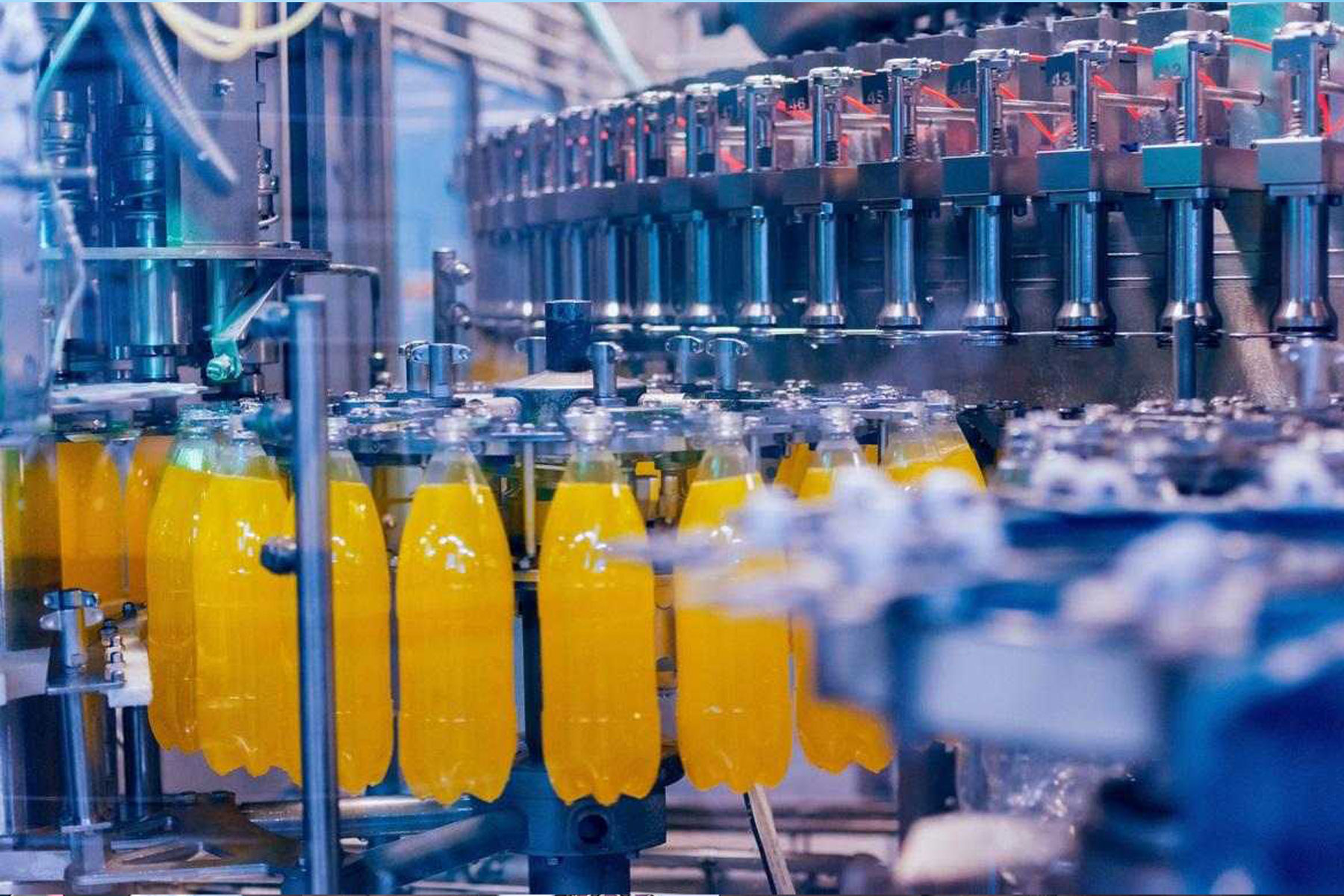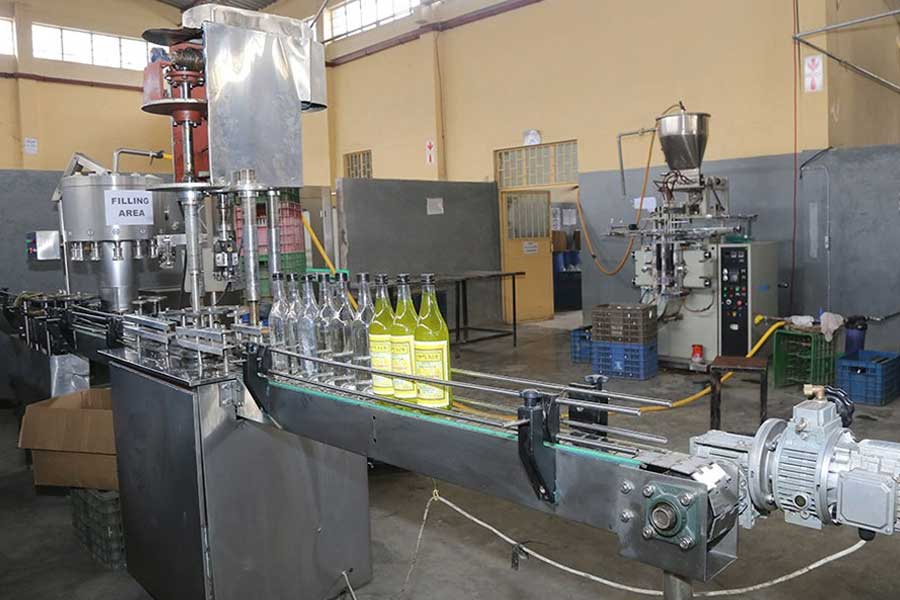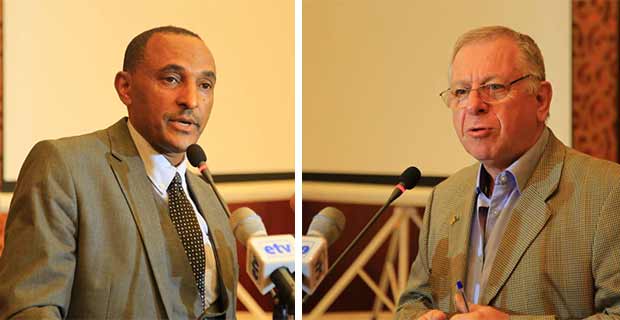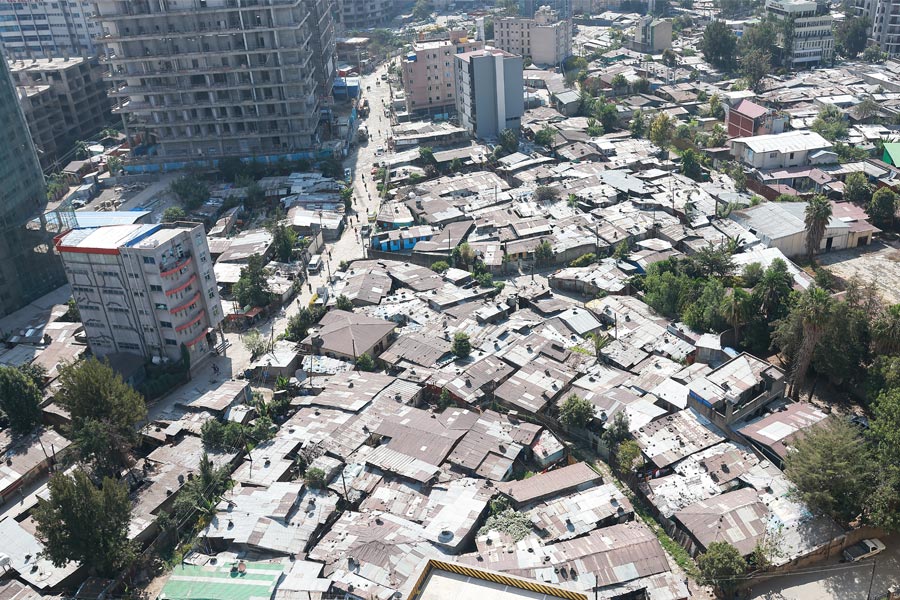
Agenda | Jul 28,2024
The Ethiopian government recently implemented revised import taxes to bolster domestic businesses and decrease reliance on foreign goods. This move is in line with the country's ongoing import substitution policy, which prioritizes local manufacturing. The revised import tax regime targets imported products, especially those for which local alternatives are readily available. These products will now face higher taxes, with a 10pc surge on items like wheat flour and 15pc on office supplies.
The goal is to make domestically produced goods more competitive in the market. Conversely, import taxes on essential materials used for local assembly, such as Completely Knocked Down (CKD) parts, have been reduced to incentivise local manufacturing and assembly.
Commissioner Debele Kabeta from the Ethiopian Customs Commission spearheaded this policy shift, aiming to support the struggling manufacturing sector. Endale Yimer, head of Tariff Classification & Procedure at the Commission, emphasised that the changes were made after careful consideration of their social and economic impacts, hinting at ongoing revisions.
"Tariffs need constant tweaking," he told Fortune.
According to Endale, the revision strategically targets agricultural and manufacturing items. Imposing higher tariffs on imported products for which there are locally producible alternatives is expected to land domestic production in a competitive space.
Eyob Tekalign (PhD), state minister for Finance, led the tariff revisions, aligning them with the overarching import substitution policy 'Ethiopia Tamirt'. The Ministry's Tax Policy Division, headed by Gossa Tefera, emphasised the government's commitment to promoting the manufacturing sector.
"We have revised it," Gossa told Fortune.
In 2021, an updated iteration of the customs tariff book was initiated, encompassing 8,000 tariff line items. The objective was to elevate the competitiveness of domestic producers by imposing augmented duties on analogous locally manufactured goods. The tariff book comprised six duty tax rates, ranging from zero to 35pc, based on the nature of the imported goods.
The changes have been welcomed by various sectors, particularly flour manufacturers who have been lobbying for policy interventions. Muluneh Girma, the general manager of the 28-year-old Ethiopian Millers Association with 142 members, expressed optimism about the potential to increase the competitiveness of local manufacturers.
He said flour producers wrestled with imported products. While local flour price hovers around 8,100 Br a quintal, price differences in upto a thousand with imported alternatives led to the closure of six flour-producing factories exacerbated by a shortage of wheat in the market.
"They couldn't compete," he said.
Similarly, Mizan Flour & Biscuit Factory's General Manager, Hussien Endris, welcomed the tariff amendments, hoping for a more level playing field in the market. He emphasised the detrimental impact of the price difference between local and imported flour on businesses, leading to closures and layoffs.
Hussien revealed that his company had been forced out of business for six months, attributing it to the loss of their competitive edge, ultimately leading to the termination of 15 employees. His company, operating for the past decade on a 2,055Sqm area around Lebu area, boasted a capacity of 400Qtl per day. Despite the setbacks, Hussien expressed unwavering confidence in the tariff amendment's potential to level the playing field for flour factories that had been largely sidelined due to a loss of market share.
"We will soon regain our position in the market," he said.
The Ministry of Industry's proactive efforts to incentivise import substitution in the past year led to an extensive study aimed at evaluating potential policy adjustments to boost local production. Netsanet Abebe, the Ministry's head of chemical products promotion & competitiveness, elucidated that tariff revisions emerged as one of the crucial policy shifts necessary to enhance the competitiveness of local producers, following thorough consideration of various options.
"Manufacturers have been advocating for these amendments," she told Fortune.
She said the critical importance of boosting the capacities of local producers as a cornerstone for realising the import substitution strategy, particularly for a country like Ethiopia facing challenges with insufficient foreign currency reserves. She acknowledges the lingering challenges that require concerted efforts to address, stating: "It's progress."
A study conducted by the United Nations Development Program (UNDP) has revealed that 450 factories ceased production last year, contributing to a 1.5pc decline in manufacturing's share of GDP. Economists concur with these findings, cautioning that while tariff amendments are a step in the right direction, systemic structural impediments in the country need comprehensive reform.
Arega Shumete (PhD), an economist, highlighted challenges such as access to finance, security concerns, and supply chain disruptions that require attention.
"Discouraging imports won't be without challenges," he cautioned. "It'll require strategic caution."
Arega argued that the challenges facing local manufacturing extend beyond tariffs and delve into issues such as access to finance, escalating security concerns, and external shocks. He stressed the importance of enhancing administrative support to maintain peace and security across regional states, identifying it as a fundamental step towards achieving import substitution goals.
However, wheat production remains an issue. Over 164 million quintals of wheat were cultivated last year from 18 million farmers where Oromia, Amhara, and Central Southern regional states account for over 90pc of the production. This year, conflict-ridden areas are expected to produce much less.
Despite challenges, the Ministry of Agriculture remains optimistic.
Esayas Lemma, the head of crop development at the Ministry, said there was a widespread shortage of fertiliser in the previous year, which he believes has since been addressed. He mentioned the Ministry's initiatives to support factories through the promotion of market linkage in contract farming schemes and quality assurance programs. However, he acknowledged that achieving quality and efficiency remains a significant challenge due to issues like hoarding and adulteration by intermediaries, which can disrupt the market chain.
"We are doing what we can to improve sustainability," he said.
He noted that the current month marks the most critical time for the harvest season of irrigated wheat, with an anticipated yield of over 2.97 million hectares, amounting to 117 million quintals. Farming activities primarily focus on land preparation from October to January, with March being the harvest season.
Officials at the regional level where conflict has surfaced offer a contrasting perspective.
Data from the Amhara Region Bureau indicates a notable decline in wheat cultivation during the irrigation season. Only 144,000hct of land have been cultivated, representing a significant decrease of half compared to the same period last year, when 9.52 million quintals of wheat were produced from 213,000hct of land.
Teshale Ayalenew, the head of irrigation and harvest at the region's agriculture bureau, attributed this decline to various factors, including security concerns in the area. He explained that a large portion of land remains unplowed, as several farmers have refrained from agricultural activities.
"Productivity has been affected," he said.
Despite the Ministry of Agriculture procuring a total of 14.8 million quintals of fertiliser, with the region allocated 8.05 million quintals, security concerns in the region continue to pose challenges.
Among the 450,000 farmers currently involved in wheat production in the region, Desse Banti, 60, is facing significant challenges due to the shortage of agricultural inputs, particularly fertiliser, for his wheat cultivation. Desse, the breadwinner for his family of five, cultivates wheat on his one-hectare land in Fogera Woreda.
Desse shared that in the previous year, he successfully cultivated 40qtl of wheat due to the adequate supply of agricultural inputs. However, this year, he is facing a dire situation as his plot has run dry of fertiliser, jeopardising his production, which he fears may be halved.
"It's been one of the toughest times," he told Fortune.
PUBLISHED ON
Mar 16,2024 [ VOL
24 , NO
1246]

Agenda | Jul 28,2024

Fortune News | Apr 20,2024

Fortune News | Jun 21,2025

Fortune News | Feb 26,2022

Fortune News | Jul 09,2022

Life Matters | Aug 16,2025

Fortune News | Sep 08,2019

Agenda | Jul 20,2025

Fortune News | Nov 25,2023

Radar | Jan 23,2021

Dec 22 , 2024 . By TIZITA SHEWAFERAW
Charged with transforming colossal state-owned enterprises into modern and competitiv...

Aug 18 , 2024 . By AKSAH ITALO
Although predictable Yonas Zerihun's job in the ride-hailing service is not immune to...

Jul 28 , 2024 . By TIZITA SHEWAFERAW
Unhabitual, perhaps too many, Samuel Gebreyohannes, 38, used to occasionally enjoy a couple of beers at breakfast. However, he recently swit...

Jul 13 , 2024 . By AKSAH ITALO
Investors who rely on tractors, trucks, and field vehicles for commuting, transporting commodities, and f...

Oct 25 , 2025
The regulatory machinery is on overdrive. In only two years, no fewer than 35 new pro...

Oct 18 , 2025
The political establishment, notably the ruling party and its top brass, has become p...

Oct 11 , 2025
Ladislas Farago, a roving Associated Press (AP) correspondent, arrived in Ethiopia in...

Oct 4 , 2025
Eyob Tekalegn (PhD) had been in the Governor's chair for only weeks when, on Septembe...